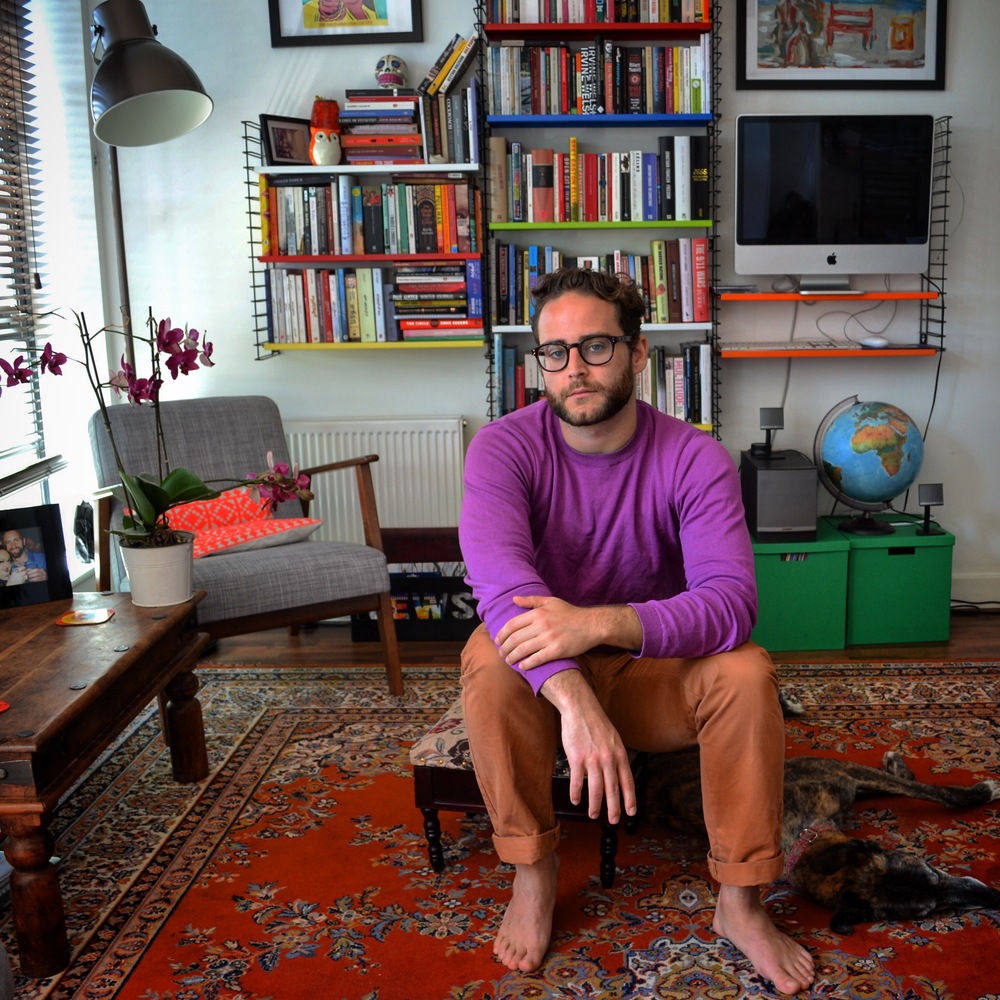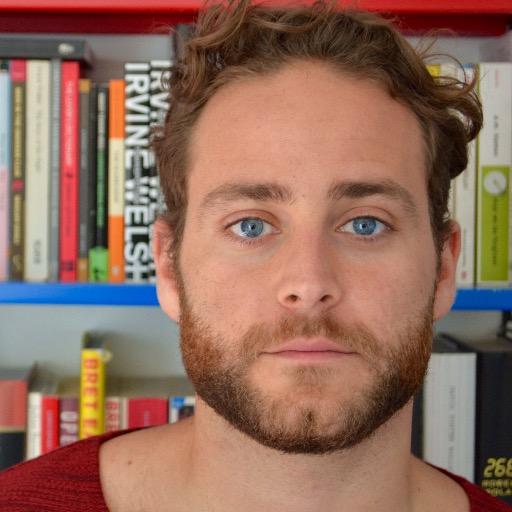Interview | Author Saleem Haddad on the Middle East’s ‘don’t ask, don’t tell’ gay culture
By Ben Kelly

With a Lebanese-Palestinian father and a German-Iraqi mother, Saleem Haddad was born in Kuwait in the 1980s, before the first Gulf War moved his family to Cyprus and eventually Jordan. As a writer and an aid worker, his life has been consumed with the issues affecting the Middle East and its peoples. Attitude’s Ben Kelly met with him to discuss his debut novel Guapa – a powerful coming-of-age story about a young gay man growing up in an unnamed, post-Arab spring country.
You’re very politically engaged as a novelist. How did your mixed heritage and background shape your world view?
For a long time I felt I didn’t belong in any specific countries, leaving me a bit on the outside. Of course, being gay in the Middle East you already feel like you’re on the outside. I think by virtue of my background it’s hard to grow up and not be political – it’s in your face on a daily basis.
Guapa is about a young man called Rasa who is growing up gay in the Middle East. What was life like for you growing up as a gay man?
I knew I was different from I was very young, and Rasa coming to terms with his sexuality very much mirrors my own journey in terms of trying to find my own word to identify myself with. My own journey was more traumatic than Rasa’s. Growing up, I was haunted by the idea that there was no road for me. The only road was marriage. The idea of a wife and kids was a nightmare, but there was no alternative to that.
I studied in Canada and for me, I saw that as a way out – to explore what it meant to be gay even though I wasn’t ready to acknowledge it. I was struggling with this whole new aspect of my identity which was being Arab, especially after 9/11. It’s ironic, but when I returned to the Middle East, that’s when I started to find my community. Grindr didn’t exist but Gaydar was starting to emerge. You’d meet people just by guessing. You’d have drinks and then get drunk enough to ask “Are you gay?” There were some bars that weren’t necessarily gay, but you would slowly begin to find out about them.

I think people would be surprised to find out that there are gay scenes in the Middle East, even if it is very underground or discreet.
It’s interesting, because I travel a lot for work so I’m exposed to a lot of different gay scenes and I try to reflect part of that in the book. There is a thriving gay scene in Guapa but it’s a lot more hidden and there’s an element of being discreet with names of bars and locations. For a while it was very much parties at people’s houses or an occasional night at the bar but it’s definitely grown. In some place more than others. I’m currently in Dubai and people would be shocked to discover these huge gay clubs that look like clubs in Vauxhall. But it’s all about the label, if you don’t label it as gay it’s a ‘don’t ask don’t tell’ policy.
The book doesn’t name the country in which it is set, but it is clearly a country which had an Arab Spring revolution. How do you think that reflects on the main character and how he’s coming to terms with himself?
I’ve always wanted to write a queer book set in the Middle East and I was really struggling to place it because I thought it was important to bring the politics of the region into it someway. When the Arab Spring happened I thought there were a lot of parallels between coming out of the closet and going out into the streets and demanding rights. I began writing the book in late 2011 as the political changes were happening in Egypt, Yemen and Syria, so I was very much involved in meeting activists and politicians and being involved in those discussions. The tone of the book changed throughout the year as a political development happened and something that was once very promising began to darken.
We look at the areas of Syria and Iraq now controlled by ISIS, and it’s a very dangerous place for gay people to be. Was life any better, or any worse, for gay men under the Assad regime?
It’s funny because a lot of my gay friends in the Middle East would look back and say we had it much better before the Islamists and I think there is an element of truth in that. I think Rasa struggles with that truth too because he hopes for political change but then he realises there is potentially a cost for that, especially when it comes to his sexuality. But part of the reason I think we struggle to live in this region as queer people is because we don’t have protection, because of this culture of impunity, this lack of accountability. A lot of that is associated with those regimes – including Assad – where if you come from a good family and have a certain level of power in society then you’re protected; but if you’re queer and lower class then you have no protection. So I would reject the notion that we had it much better, because we really didn’t.

So you’re saying class has a big role to play in how accepted your sexuality is?
If you can afford to go to Mykonos every summer or if you have your own room or apartment then you have a level of escape, you can be who you are. Or if you’re able to bribe certain people or if you have connections to people in government then you’re offered that level of protection. Even when it comes to some bars, if you can afford to pay for the drink then you can go in and have the space to enjoy but if you come from a lower class family then you don’t have these options. And that’s part of my personal frustration with some of the gay movements in the region. A lot of them come from this middle upper class environment, so there’s a disconnection. It’s two different lives.
Do you think that we in the West have an obligation to help gay people in the Middle East, or is it an issue that can only be resolved from within?
I think it’s a combination of the two, I think solidarity is very important, but when done in a certain way. Certain times I question the idea that the West is this agent of progress in the region, when you look at the support they’ve given to regimes like Saudi Arabia and Egypt that have clamped down on – not just revolutionary movements – but also movements that call for women right and queer rights. So my concern is that a lot of solidarity that is provided by the Eest doesn’t take into account the wider political and economic context.
I think for Western advocates and audiences there is a role to play: listening to different queer stories that are coming from the region, and challenging Western policies that support political oppression. There’s a way of thinking in the region that sees the constructs of LGBT people to be Western constructs, that are imposed on the region and I disagree with that on some level, because I come from such a diverse background. I feel that such a mixing can be a positive thing but it needs to happen both ways. The challenges of queer people in the region are unique to those in the Middle East and they deserve their own unique solution that has to come from the region.

Do you think that homosexuality will ever be truly accepted in the region?
Absolutely I do, you have to stay positive. I think it will take time but I think when it does, it’ll happen very quickly, like the Arab Spring protests. People had been active for years, but when it happened, it happened so quickly, with no one seeing it coming. This is why it was important for me to write the book publicly and have my name on it rather than publish it anonymously because I think it’s with really small acts that you start to open doors and normalise it. I have a Palestinian friend that has started to come out to people he meets on the streets in a very normalised way and it’s just a way to bring the topic up from something that isn’t discussed to something that is open.
Will you continue to write around these themes in your future work?
There are so many stories to tell. At the moment, the idea that I’m working on next is not queer. I’m interested in Iraq and the role that arts have played in the last 50 years so I think I’ll take a step away from that. But I have one or two short stories that are small snapshots of queer life in the Middle East that I might develop a bit more.’
‘Guapa’ by Saleem Haddad is published today through Other Press.
More stories:Majority of LGBT travelers wouldn’t visit a destination where it’s illegal to be gayGay men recount the horrors of life under ISIS
